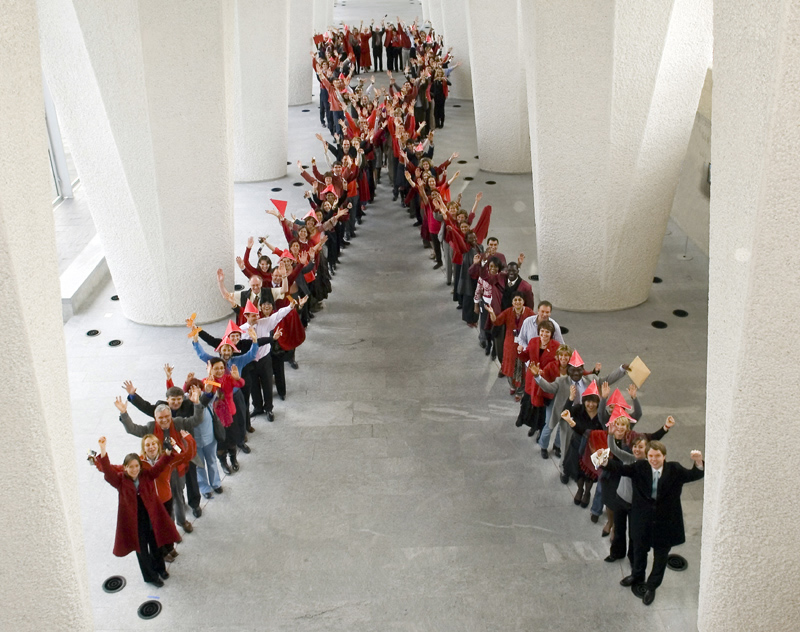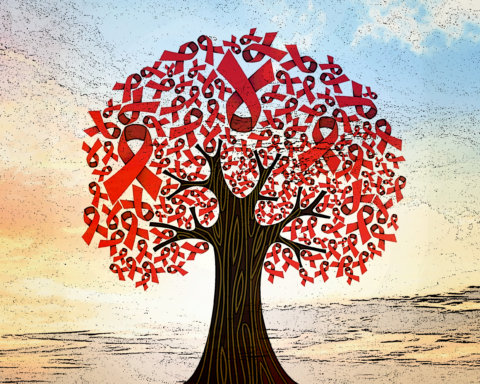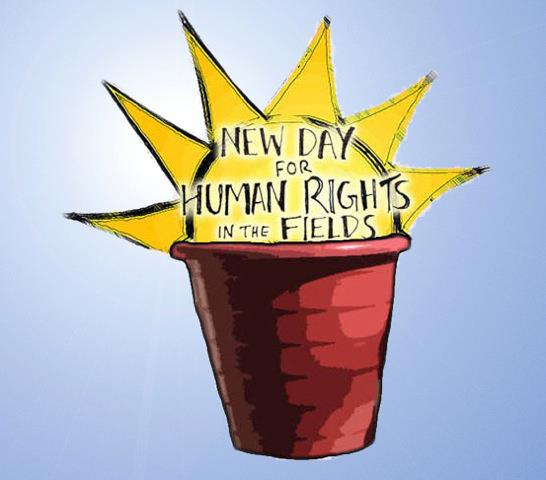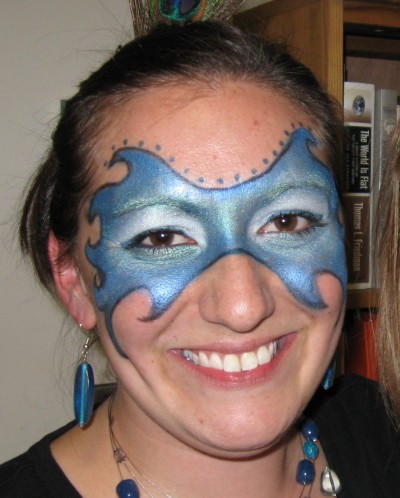An HIV/AIDS Advocacy Sermon
A Sermon by Emily Rose Proctor, originally preached on the 1st Sunday in Advent, World AIDS Day, December 2, 2012, at Brown Memorial Park Avenue Presbyterian Church, Baltimore, MD. This sermon is part of a series of reflections from Johnson C. Smith’s first annual HIV competency training conference. New articles every Thursday! Sermon Text: Jonah 1-4
Last year, during the Children’s moment, I held up a red ribbon to the kids and asked them if they knew what it was. One of them remarked that it looked like a fish. Well, what do you know? If you turn it sideways, it does!
Little did I know that a year later on the first Sunday after World AIDS Day, the lectionary text would be Jonah and the Big Fish. If you ever needed proof that God has a sense of humor, Jonah is it.
Jonah, you see, is like the anti-prophet. When the Lord tells him to go to Nineveh, he boards a ship and sails in the opposite direction. When there’s trouble on the ship, the sailors pray to their gods, while Jonah sleeps. When Jonah finally does go to Nineveh, he preaches the shortest sermon ever recorded—only 5 Hebrew words! And he doesn’t mention God once! Nothing about God’s mercy, nothing about repentance, nothing about hope—there’s no good news in Jonah’s sermon, only impending doom and destruction.
And when, miracle of miracles, his terrible preaching actually results in the transformation of the people, he gets mad and throws a temper tantrum.
So I knew I was in trouble when I started identifying with Jonah.
First it was his reaction to the call. Now, I know I’m not the only one in here who has heard the call of God and wanted to run in the opposite direction. For me it happens every World AIDS Day.
___________________________________________
But after a year in South Africa exploring the Church’s response to AIDS, I had learned too much and had met too many HIV infected and affected people to pretend ignorance.
___________________________________________
Most weeks and months I can get away with convincing myself that I have other more important or pressing things to do. Things that are named in my job description. Things I will be held accountable for. People who are right in front of me, worshipping in these pews.
I didn’t mean to become an AIDS activist, if you can really call me that at all. I kind of stumbled onto it right out of college, more out of curiosity and an inability to speak a language other than English than any particular passion or knowledge about AIDS.
But after a year in South Africa exploring the Church’s response to AIDS, I had learned too much and had met too many HIV infected and affected people to pretend ignorance.
So now as December 1st approaches, I can’t help but hear that awful call of the Lord. That feeling that at least on this day, I have a responsibility to say something about AIDS in the Church, to the Church.

I’ll be honest. The further I get from immersion in full-time HIV work and relationships, the harder it gets to bring this message to the church. Part of me wants to run like Jonah in the opposite direction, to close this particular chapter in my life and move on.
Maybe some of you know what that’s like—there are probably days when you’re not sure you want to go again to North Avenue or City Hall or Annapolis, when you get tired of sending out e-mails that few people respond to, times when you feel discouraged when others don’t seem to share your vision or when those with more power or money or cultural appeal prove more persuasive.
Even those of us still giddy from the recent victory for marriage equality in Maryland can remember all too vividly the frustrations of previous attempts for justice, and know that we still have a long way to go in the church.
If part of me wants to throw off the mantel of AIDS activism completely—and believe me I have seriously thought about it several times over the last three years—the other part of me wants to let Nineveh have it—the ugly reality of all these horrifying statistics and nothing more:
- that 34 million people are living with HIV worldwide,
- that every nine and a half minutes another American is newly infected,[1]
- that one in five Americans still don’t know their status,
- that there are almost seven million people worldwide who qualify for anti-retroviral treatment and aren’t getting it,[2]
- and of those that are, less than half of them are successfully adhering to their treatment regimen.[3]
It’s all too easy to sound like Jonah, all gloom and doom and finger wagging. You should have seen the first draft of the litany of confession! Thankfully Andrew helped catch it—the not-so-attractive spirit of Jonah alive and well inside of me.
___________________________________________
If part of me wants to throw off the mantel of AIDS activism completely—and believe me I have seriously thought about it several times over the last three years—the other part of me wants to let Nineveh have it—the ugly reality of all these horrifying statistics and nothing more.
___________________________________________
Of course, the crazy thing about this story is that people hear Jonah’s poor excuse for proclamation, and lean into hope anyway. The whole city—no, even the King, the whole Assyrian Empire!—gets on board, names what has been happening around them, and commits to change.
Now, however you have been involved in advocacy work, you can probably join me in raising an eyebrow at this scenario.
This kind of massive cultural shift from top to bottom doesn’t happen overnight. It takes decades of hard work by lots and lots of people working in coalitions, putting themselves on the line, telling their stories, again and again and again!
But I think the effect of the surprising mass-repentance of the Ninevites is that it shocks all of us would-be prophets out of any cynicism, out of any self-pity, and out of any low-ball assumptions we might be making about our potential impact, our hearers response, and most importantly, about what God is capable of.

Because, really, God is the main actor in this story, not Jonah.
God is the one doing all the heavy lifting: speaking a word, stirring up the wind, appointing prophets and big fish and bushes and worms, and finally, having compassion, not only on the Ninevites, but also on Jonah.
See, that’s what we prophets, we activists, we people of faith sometimes forget—that God’s mercy, God’s compassion is not just good news for those of us who don’t know God; it’s also for those of us who do. It for us when we slide into self-righteousness, self-pity, judgment, cynicism, and down-right petulance. It is also for those who have not yet heard what we have heard or seen what we have seen, and for those who have been called to be prophets for other causes and to other people. It is for all of us.
And so I don’t have to stand up here and try to guilt us all into leading the fight in Baltimore against HIV & AIDS. And, believe me, we could. We have the money, we have the location, we have the relationships with other churches, with health institutions, with schools. We have expertise in medicine, public health, education, law, counseling, and social work. We have a local nonprofit Hope Springs whose sole goal it to work with churches, especially in our zip code, to provide education and training and connect volunteers with the most needed services in ways that match our individual gifts.
But here’s the thing that God’s surprising compassion for Nineveh helped me realize: most of us are already engaged in the fight against HIV/AIDS.
Did you know that one of the leading predictors of whether someone will contract HIV is their level of education? So when you work to make our schools better, you are protecting our children from HIV.
War is a huge accelerator of the spread of HIV. So if you are working for peace, you are helping stem the spread of HIV.
If you are advocating for fairer wages, for living wages, for a social safety net, for wider access to health care, then you are fighting HIV.
If you are helping couples work through marital issues or keeping your own marriage healthy, you are making it harder for HIV to spread.
___________________________________________
But here’s the thing that God’s surprising compassion for Nineveh helped me realize: most of us are already engaged in the fight against HIV/AIDS.
___________________________________________
If you are teaching your children the values of justice, honesty, respect, open mindedness, and compassion, then you are fighting HIV.
If you speak out against sexism or homophobia or racism or any kind of –ism, then you are making it harder for HIV to thrive.
If you are advocating for people with disabilities, then you are helping many with HIV.
Did you know that they tried to do a study on the correlation between domestic violence and HIV in women, and THEY COULDN’T FIND ENOUGH HIV+ WOMEN WHO HAD NOT EXPERIENCED DOMESTIC VIOLENCE to have a control group. Almost every HIV+ woman they contacted about the study had experienced some form of domestic violence in their lifetime. If you are working to prevent domestic violence or can help a friend get out of an abusive relationship, you are a partner in the fight against HIV/AIDS.
If you break the silence about your own pain or mistakes or vulnerability in this community of faith, you make it a safe space for someone who is HIV+ to share his or her story. And I have heard you do it again and again.
Now, if some of you come up to me after the service or any other time and say, Pastor Emily, we want to do something—form a care team, get more education ourselves, offer education to parents at Eutaw Marshburn, train peer educators at Pedestal Gardens, help with testing once a month at Payne Memorial—or just explore the options, I promise not to do like Jonah and get upset. I would be thrilled, and I know God could use us to do amazing things.
But if you don’t come to me, I’m not going to be upset either because I know you. I know how many of you are passionate advocates for all kinds of people in all kinds of circumstances. I know the hearts you have for justice, for peace, for equality, and for love. I know what kind of work this church does in the city and in the world. It doesn’t matter what particular issue of justice God has laid upon your heart or mine—they are all connected.
And see, we have an advantage over Jonah because we have heard the good news that we need not go it alone. We have each other to help us listen for God’s call when it come, to support one another in the work each of us has been called to and to which we as a community have been called.
And we have a savior, Jesus Christ, who modeled that compassion that Jonah was in such desperate need of. We have a savior, Emmanuel, who, even as we speak, is prepared to go with us to whatever place God’s startling compassion might lead.
Notes
[1] National HIV/AIDS Strategy: Executive Summary, http://aids.gov/federal-resources/national-hiv-aids-strategy/overview/releasing-the-strategy/executive-summary.html, last update 6/6/2012.
[2]UNAIDS World AIDS Day Report 2012, http://www.unaids.org/en/media/unaids/contentassets/documents/epidemiology/2012/gr2012/JC2434_WorldAIDSday_results_en.pdf.
[3] Courtney McQueen,“Early Treatment Adherence Decreased risk of Treatment Failure in HIV/AIDS Positive Adults,” http://www.aidsbeacon.com/news/2012/01/09/early-treatment-adherence-decreases-risk-of-treatment-failure-in-hiv-aids-positive-adults/.






Unbound Social